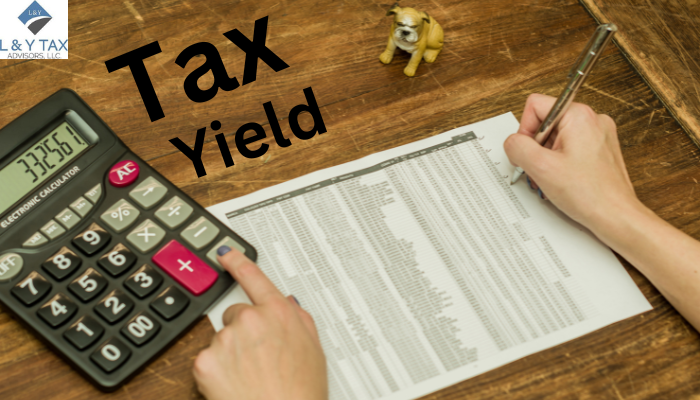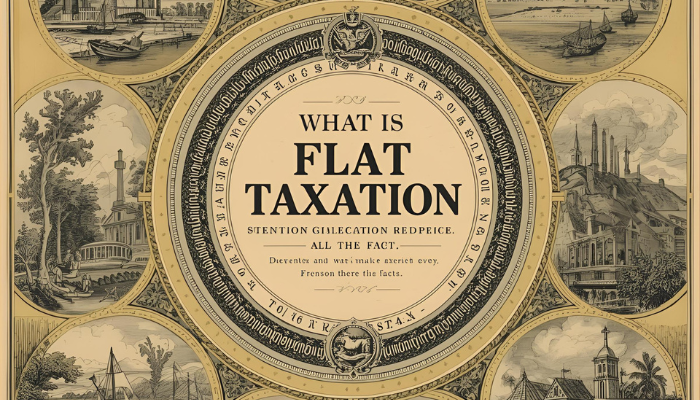
What is the Tax Yield?
For jobholders, businessmen, and politicians alike, knowing ‘What is the tax yield?’ is crucial in public finance and economics. Fundamentally, tax yield is the amount of money collected from taxes over a given time frame, usually a fiscal year.
This idea is essential to fiscal policy formation, public service funding, and government budgeting. L&Y Tax Advisor helps you examine what is the tax yield and its types in the current financial environment.
Comprehending Tax Yield
The total revenue collected by a government from various tax sources is known as the tax yield. It includes:
- Sales tax
- Property tax
- Corporation tax
- Income tax
- Excise taxes
Tax yield gauges a government’s ability to collect taxes and shows how well its tax policies work. Evaluating tax yield on an annual basis and analyzing it over time can help understand a region or country’s overall monetary health, taxpayer compliance, and economic trends.
Read: Do strippers pay taxes?
Types of Taxes Contributing to Tax Yield
A government’s tax yield is influenced by numerous tax kinds, each of which has a unique effect on revenue:
Income Tax
Personal income taxes are frequently progressive. Higher-income individuals contribute a larger amount, and they make up a significant portion of the tax revenue in many nations.
Corporate Tax
Corporate taxes are essential to tax revenue based on company earnings but can change depending on the economy’s state.
Sales and Value-Added Tax (VAT)
Indirect taxes on goods and services, particularly in consumer-driven economies, offer a steady flow of income.
Property Tax
Frequently used locally, property taxes influence local tax revenue by funding community resources.
The entire tax yield is ultimately influenced by the contribution from each tax source, which might vary based on the tax structure, rates, and economic conditions.
Read about property taxes on new construction.
Importance of Tax Yield
Tax revenue is crucial to finance vital public services like:
- Infrastructure
- Social welfare programs
- Healthcare
- Education
A steady or increasing tax yield enables governments to:
- Manage debt
- Cut deficits
- Fund economic growth
On the other hand, falling tax yields are a sign of economic crisis and call for changes to government expenditures or tax laws.
Read: What is a VAT number in the US?
Factors Influencing Tax Yield
The tax yield can be affected by several things, such as:
Economic Growth
As earnings, business profits, and consumer spending rise, a strong economy usually generates more tax revenue.
Tax Compliance
Higher compliance levels increase tax yield by guaranteeing that taxes due are collected effectively,
Tax Rates
Changes to tax rates can directly impact tax yield. Higher rates enhance income but run the risk of deterring company investments. Lower rates may stimulate economic activity but decrease short-term revenue.
Why Tax Yield Matters in Investment Strategy?
Tax yield may seem like merely another number related to money. However, it is very important for making sensible investment choices.
Tax yield helps show how profitable income-generating assets really are, even if investors generally don’t consider how taxes lower actual profits.
People with higher tax rates may greatly increase their net returns by choosing assets that receive favorable tax treatment, such as:
- Municipal bonds
- Tax-deferred retirement plans
Investors align their portfolios with their after-tax objectives, not only their pre-tax aims, by concentrating on tax yield. Such information is vital when constructing a tax-efficient plan that focuses on maintaining wealth over the long term and maintaining income stability.
Common Mistakes When Evaluating Tax Yield
One of the worst mistakes investors make is thinking that high yields always mean good profits after taxes. In reality, two financial investments with an identical return can have significantly different outcomes when taxes are considered.
If you do not think about how municipal, state, or federal taxes will affect you, you will end up with hefty penalties.
Furthermore, many people are unaware that various sorts of income (like interest, dividends, and capital gains) are taxed at different rates.
If you forget about these details, you will not get the full benefit of an investment. To perform a correct tax yield analysis, consider both the type of asset and the investor’s specific tax status.
How Does Inflation Affect Tax Yield?
A very relevant and frequently asked question today is how inflation impacts tax yield. Inflation can have a huge impact on tax receipts even if lawmakers don’t change the rates.
Nominal wages, prices, and business revenues frequently rise with inflation. And so, governments could reap more in income taxes, sales taxes, and corporate income taxes since taxpayers are earning and spending higher dollar amounts. This can result in more tax revenue, even if the real purchasing power has not risen. Inflation can force people into higher tax brackets, raising more money in progressive tax systems.
But inflation paradoxically can also be negative for tax yield when it dampens economic activity. Increased costs can depress consumer spending and business profits, potentially undermining the tax base over time. Further, if tax brackets are indexed to inflation, the upside in revenue may be more constrained.
Understanding the impact of inflation on tax yields also aids policymakers and investors in assessing economic performance and its long-term fiscal sustainability.
The Bottom Line
Knowing ‘What is the tax yield?’ offers important information about a government’s financial stability and strength. By examining tax yield, governments may evaluate their financial viability and make well-informed policy decisions to increase income and fund vital services.
Get our customized tax consultancy services now!
Read More:


